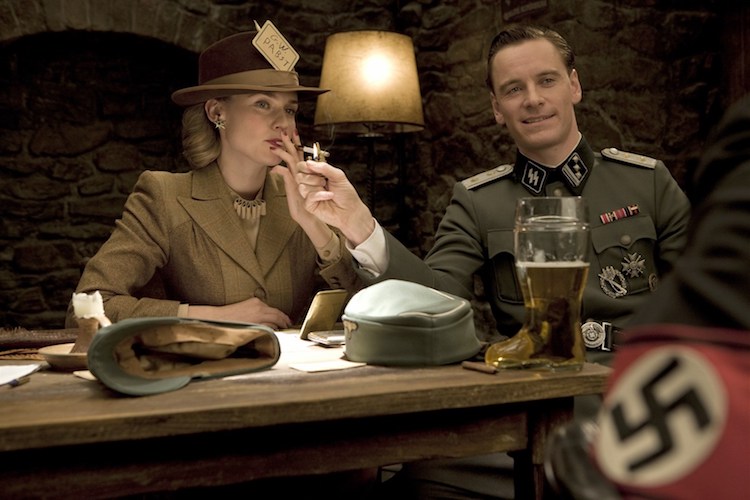The film opens in Nazi-occupied France, where Colonel Hans Landa (Christoph Waltz), a cunning and ruthless SS officer nicknamed “The Jew Hunter,” interrogates a French dairy farmer hiding a Jewish family under his floorboards. This encounter leads to the massacre of the family, but a young girl named Shosanna Dreyfus (Mélanie Laurent) escapes.

Years later, Shosanna is living in Paris under a new identity, running a cinema. Meanwhile, a group of Jewish-American soldiers led by Lieutenant Aldo Raine (Brad Pitt), known as “The Basterds,” are carrying out a brutal campaign against the Nazis, scalping soldiers and spreading fear among the German ranks.

Their paths converge when Shosanna is chosen to host a major Nazi propaganda film premiere at her theater, with high-ranking officials including Adolf Hitler expected to attend. Seeing a chance for revenge, she hatches a plan to burn the cinema down during the screening, using flammable nitrate film reels.

Unbeknownst to her, the Basterds also plan to attack the premiere, having infiltrated it with the help of German actress and Allied spy Bridget von Hammersmark (Diane Kruger). As both plots unfold simultaneously, the film builds toward a fiery climax where history is violently rewritten. The theater burns, and key Nazi leaders, including Hitler, are killed in the blaze — a cathartic and fictional end to the Third Reich.
Tarantino crafts Inglourious Basterds with his signature blend of stylized violence, extended dialogue, and nonlinear storytelling. Christoph Waltz’s performance earned widespread acclaim, winning him the Academy Award for Best Supporting Actor. The film is a provocative meditation on vengeance, propaganda, and the power of cinema itself, reimagining the war not as it was, but as it could have been through the lens of pulp fiction fantasy.



